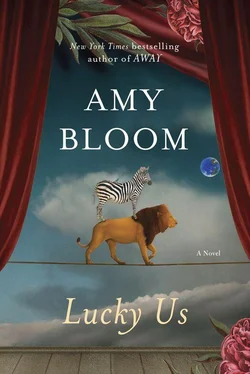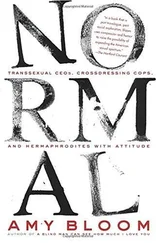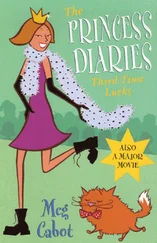“You want to give me a hand, here, missy?” she said.
Reenie threw down the plates. She said she’d given up on the Church. She said she wasn’t one of those cafeteria Catholics, picking and choosing. She knew women who used diaphragms and took communion and men who committed adultery every week and never even bothered with acts of contrition. They opened their filthy, sinful mouths wide for the body and the blood of Christ and Reenie did not believe in that. She said she understood that the Church wasn’t open to her, any more than her mother would have been. Most Italian men were like her father, she said, may he rest in peace. Their attitude toward the priest is You mind your business, I’ll mind mine. Reenie said she didn’t care for Pope Pius XII, who never said a word about the murder of the Polish Catholics, never mind the Jews. She said that she thought there were two possibilities, that Jesus was as the Bible described him, and her soul was in good and blessed hands, or Jesus was a cardboard figure pasted together by a bunch of smug priests and cowed nuns, and her soul, if she had one, was on its own. And so is yours, she said.
If Reenie didn’t send Father Dom home, I thought Clara would. Clara leaned in the doorway, watching Reenie assault the table. Clara said she didn’t like to talk to priests. She didn’t like to talk to Baptist ministers either, but she certainly knew how. She told Reenie she didn’t understand a thing about Catholics. It’s all praise Mary, she said, women doing all the hard work and letting men run the church and calling the shots for everyone. When she was growing up, she said, her minister was a good-looking man, shiny black hair curling down to his snowy white collar. The ladies quoted him when it suited them, fussed over him, and carried on but didn’t they manage to spin the churchly world on their strong brown fingers. The doorbell rang and Reenie poured us each a glass of wine. After five minutes, Father Dom, who clearly knew when a confession was coming and when that ship had sailed, came back downstairs and left. Reenie went back to the house, looking like a woman who’d wrestled and won.
If our paths had crossed earlier, Clara said, if someone had brought you when you were a baby to the Pilgrim’s Hope Baptist Church in Chicago, you would have heard me sing when I was fourteen. I had a vibrato like a hummingbird. You could hear me almost every Wednesday at midnight, she said, and people I didn’t even know talked about me and my sweet voice. Do you believe in Jesus? she said.
I said that I didn’t. I said that I hadn’t been raised that way.
Good, Clara said. She said it was bad enough when white people believed in Jesus but it was insane for black people to believe in Jesus, although she didn’t go around saying that. She didn’t believe, ever, that Jesus was going to deliver her to anything, anywhere. She said she absolutely did not believe that after two thousand years a white man was going to come back from his own lynching to help out Clara Williams or take her hand or be her friend.
When I had started having trouble with my skin, she said, I went out and got the names of doctors and I lay under special lights and bought jars of gray powder and a bottle of blue paste that burned so bad, I cried just opening the jar. You know what I didn’t do? she said. Pray. I know your momma left you, she said. I left my mother. I had a pretty voice and ugly skin and I thought my best bet was a world of pink lights and heavy makeup. You know what my mother did when I told her I was going? She gave me five dollars and a ham sandwich and she went to church. What’d your mother give you, she said.
My mother left me a suitcase, I said. That was all I’d ever said, and “a suitcase” was always enough to get me a kind look from whoever I was telling. Francisco had practically burst into tears when I told him.
What was in the suitcase, Clara said.
I described my two white blouses, my cardigan, the two sets of underwear, and two pairs of socks. There was my brush-and-comb set and my nicest hair ribbons. I said that she hadn’t left me a photograph of herself or of the two of us.
That’s right, Clara said. She was saying to you, Look ahead, not behind.
THE DOORBELL RANG AGAIN.
“Oligodendroglioma” is what the doctor said. Iris sat with us for that and listened while we told the doctor everything: the new language and his all-day headaches and now the vomiting and his bowels and his right side entirely paralyzed and sleeping most of the day. The doctor said, Yes, that’s what this tumor is like. And he said, He didn’t learn a new language, you know. Whatever that is, it’s the tongue of his childhood.
Mamaloshen is the word he was looking for.
I SMELLED SMOKE. I RAN INTO MY SISTER’S EMPTY ROOM AND heard Iris screaming outside, on the patch of lawn near the kitchen door. I should have gone to Danny, or to my helpless father, but I ran downstairs. There were no flames anywhere. Smoky threads rose from Reenie and Iris, rolling on the grass as one person. Iris rose up on one knee and Reenie lay on the grass, crying out weakly. I ran into the house and called the ambulance. Then I carried Danny to my father’s room and lay him in bed next to Edgar.
“Vos?” he said. “Vu?”
I wrapped Edgar’s arms around Danny.
“Just keep him here,” I said. “We’re fine.”
“Of course,” he said. He shifted over. “Looks like a nice kid.”
I heard the sirens and ran back downstairs. In the red and blue flashing lights, three big men in white jackets put Reenie on a stretcher. I wanted to say, Save my sister, but Iris wasn’t dying. She was calling Reenie’s name.
I’m here, I kept saying. Iris was weeping and panting as they put Reenie into the ambulance. Two of the big men came beside us.
“Now, you, miss,” the biggest man said to Iris. “Easy does it.”
I touched her warm hair.
“Let me die,” Iris said.
The big man nodded gently and the other two put her on the stretcher and shut the ambulance door behind her.
“You can follow,” the man said to me. “Lenox Hill Hospital.”
“I can’t,” I said. “I can’t drive.”
MR. AND MRS. TORELLI came down the gravel drive, in their thick bathrobes and velvet slippers. Mrs. Torelli put her arm around me and asked me what had happened. I said there was a fire but it didn’t spread and she said, Thank God. Mr. Torelli asked me where they were taking them and he said that Lenox Hill Hospital was a good hospital, with good doctors. My cousin’s a doctor, he said. I’ll give him a call tomorrow. Mrs. Torelli pushed back my hair. You’re gonna want a shower, she said. I could see the soot on her hands.
I looked in on my father and Danny, heads together on my father’s big pillow. The kitchen had black streaks above the stove and toward the door and a pot of sauce splashed over the floor. I cleaned the floor and washed the pot. I shut the door to the kitchen. Mrs. Torelli would pay someone to fix it. I threw my smoky pajamas in the garbage. I took a shower and watched the gray water pool around my dirty feet. I used Iris’s special chestnut shampoo and her rosewater face cream and I wrapped myself in her pretty blue robe. This is the Tower, I thought.
7 Queensberry Place
South Ken, London
April 1947
Dear Eva,
One of Carnie’s ladies has caught up with me in London. She knows that you and I are sisters and that I am on the stage, which she finds thrilling. She is no longer a smart young lady from East Brooklyn (talk about your jumbo shrimp!) but is now a VIL–Very Important Lesbian — around town. She called on me to give a little hometown news and to get some Hollywood stories from me. I sang for my supper with stories of Mr. Thalberg getting frisky with his cigar and Garbo not wearing underpants and being a complete cow — all true. So, Diana Lapidus, as was, tells me that you’re well and happy and still reading palms. She said, with much wink, wink, nudge, nudge that she hears you have a son, and I assume this is Danny. It must be Danny; you wouldn’t have gotten rid of him — although you might have wanted to. He was not going to be the handsomest or easiest child. I could be mistaken, of course.
Читать дальше












